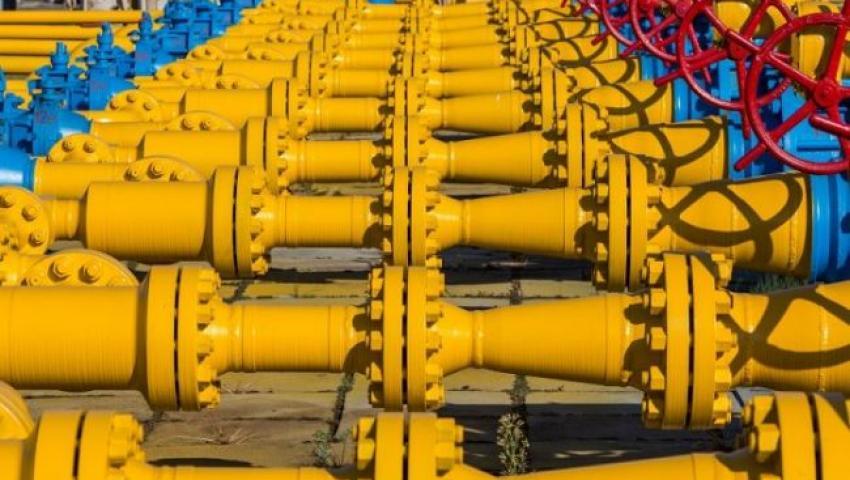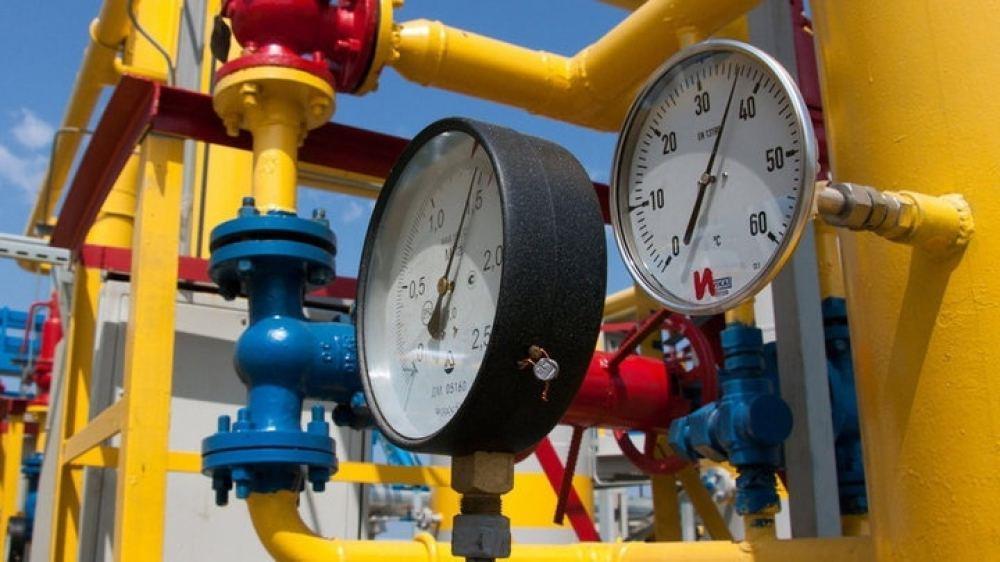Balkan countries waiting for Azerbaijani gas Review by Caliber.Az
Azerbaijan has been successfully cooperating with European countries for many years in ensuring their energy security. However, today this cooperation is acquiring strategic importance amid the global fuel crisis and the war in Ukraine. The EU countries have decided to reduce dependence on Russian gas as much as possible and diversify imports. Special attention in this process is paid to the supply of Azerbaijani gas through the Southern Gas Corridor (SGC). The role of the SGC was discussed again during the meeting between Azerbaijani President Ilham Aliyev with Albanian Prime Minister Edi Rama this week. Serbia has recently announced the acceleration of construction of an interconnector with Bulgaria and gas supply through SGC by 2023.
During the EU summit held in Brussels in late March, a final document was adopted. One of the sections of this document that was devoted to energy is the continuation of the policy outlined in the Versailles Declaration (dated March 11) to reduce dependence on Russian energy resources as soon as possible.
It is noteworthy that the prospects for more active involvement of numerous neighboring countries and partners of Europe in energy security issues, and the implementation of joint initiatives in this sphere were voiced during the EU summit in Brussels and especially at the "Berlin Energy Transition Dialogue Conference 2022".
“The European Union intends to get rid of dependence on Russian energy resources earlier than on fossil fuels in general," President of the European Council Charles Michel said, stressing that the EU's energy security program envisages accelerating the process of making necessary investments in infrastructure, for example, in the development of pipelines, their connection to interconnectors, the creation of terminals for liquefied gas and etc.
The results of recent studies by the European Commission show that gas reserves in underground gas storage facilities in Europe were greatly depleted in 2020-2021. It was impossible to replenish them to the required level. High gas prices will remain at least until 2023.
The construction of an extensive LNG infrastructure will take several years. Accordingly, the implementation of the diversification plans announced in Europe envisages active cooperation with Azerbaijan, which has taken a significant position as a guarantor of the energy security of the Old World.

The work is being rapidly carried out in this sphere. For example, more than 11 billion cubic meters of gas have been supplied to Europe through the European component of SGC - the Trans-Adriatic Pipeline (TAP) since the beginning of its operation on December 31, 2020. Moreover, 7 billion cubic meters accounted for Italy, thus Azerbaijan ranked third in terms of gas supply to the Italian market.
According to the forecasts, gas supply to Italy in 2022 is estimated at 8 billion cubic meters, however, if the current production’s growth rates are maintained, Azerbaijani gas exports may reach 9.5 billion cubic meters upon long-term and spot contracts.
Two more billion cubic meters are supplied to Greece and Bulgaria. In general, Azerbaijan supplied Europe with 2.9 billion cubic meters of gas in the first quarter of this year. This figure may increase up to 11 billion cubic meters or more in 2023-2024.
"TAP's throughput capacity can be increased to 12 billion cubic meters per year without the construction of a new pipe, it is enough to increase pressure in Greece and Albania," Luca Schieppati, managing director of TAP AG, said.
The gas supply has been increased since last year as a result of increasing gas production capacity at the Shah Deniz-1 and Shah Deniz-2 fields, and these steps are dictated not only by the current high demand in Europe but also as a result of the expected connection of new gas lines to the SGC in the near future and the expansion of exports to some new Balkan countries and Eastern Europe.
“The importance of the Southern Gas Corridor and Trans-Adriatic Pipeline, in particular, I think now is more visible than ever before. For more than a year Azerbaijan became an exporter of natural gas to Europe and Albania has always been supporting this initiative,” Azerbaijani President Ilham Aliyev said during a meeting with Albanian Prime Minister Edi Rama in Baku on April 14.
“Your high-level representatives always participated in the meetings of the South Gas Corridor Advisory Council and contributed a lot to the implementation of this project,” the president added. “This is a very good sector of our cooperation which has a big potential to grow.”
“Our representatives having their meetings on the bigger portfolio of our energy cooperation consisting of natural gas, transit, supplies also electric energy and it really could be a big part of our bilateral agenda,” the president said.
In turn, Albanian Prime Minister Edi Rama stressed that the issues related to gas supply to Albania through the SGC were discussed during the meetings in Azerbaijan. The technical group is starting to assess the corresponding initiatives and we will have data for further steps soon.
TAP AG consortium, the Ministry of Infrastructure and Energy of Albania and the Albanian Albgaz company signed a cooperation agreement in July 2021. According to the agreement, TAP will design, purchase and build a gas outlet starting point for Albania in Fier city. Albania requests to purchase Azerbaijani gas in 2023-2031.

Cooperation in the gas supply between Baku and Belgrade is also promising. Deputy Prime Minister and Minister of Mining and Energy of Serbia Zorana Mihajlovic recently said that the commissioning of the Nis-Dimitrovgrad interconnector between Serbia and Bulgaria (Bulgaria-Serbia Interconnector Gas Pipeline, IBS) in 2023 will reduce dependence on one gas supplier (Russia’s Gazprom) due to the growth of supplies of liquefied natural gas from Greece and pipeline gas via SGC from Azerbaijan.
This work is planned to be accelerated and IBS is expected to be built in the first half of next year. The construction of interconnectors in other directions was intensive as a result of the war in Ukraine and the European gas crisis. So, the ICGB project company has recently intensified the work for the rapid implementation of the Greece-Bulgaria Interconnector (IGB) construction project and its commercial operation by July 2022.
The capacity of the IGB pipeline is 3 billion cubic meters per year. It may be increased to 5 billion cubic meters per year in the future after the installation of the compressor station. Most of the pipes have been laid within the IGB project while hydraulic tests have recently been completed along the entire route of the interconnector. In the first stage, 1 billion cubic meters of gas is expected to be supplied per year by increasing up to the design capacity of 3 billion cubic meters.
In turn, Hungary also expects to buy gas from Azerbaijan in late 2023. Initially, the volumes may reach some hundred million cubic meters, and in general, the possibility of increasing supplies to 2 billion cubic meters per year is being discussed. Budapest is already conducting the corresponding negotiations with the State Oil Company of Azerbaijan (SOCAR), and these agreements look encouraging. As for the infrastructure for connecting to TAP, a Serbian-Hungarian interconnector with a capacity of 8.5 billion cubic meters per year was built in late 2021.
After the IBS interconnector is built approximately by late 2023, there will be a technical opportunity to export Azerbaijani gas to Hungary. Thus, Azerbaijan’s gas is also in demand in the Italian, Greek and Bulgarian markets. It will be also in demand in Serbia and Hungary in the future. This contributes to a stable increase in gas production in domestic fields.
There are huge resources. Along with two stages of Shah Deniz, the reserves of the Absheron, Umid-Babek, Karabakh, Shafag-Asiman fields will also be used. According to SOCAR’s estimates, the reserves exceed 1 trillion cubic meters of gas. This gives reason to be confident in the long-term and sustainable cooperation in the energy sector with the European Union and Turkey.








